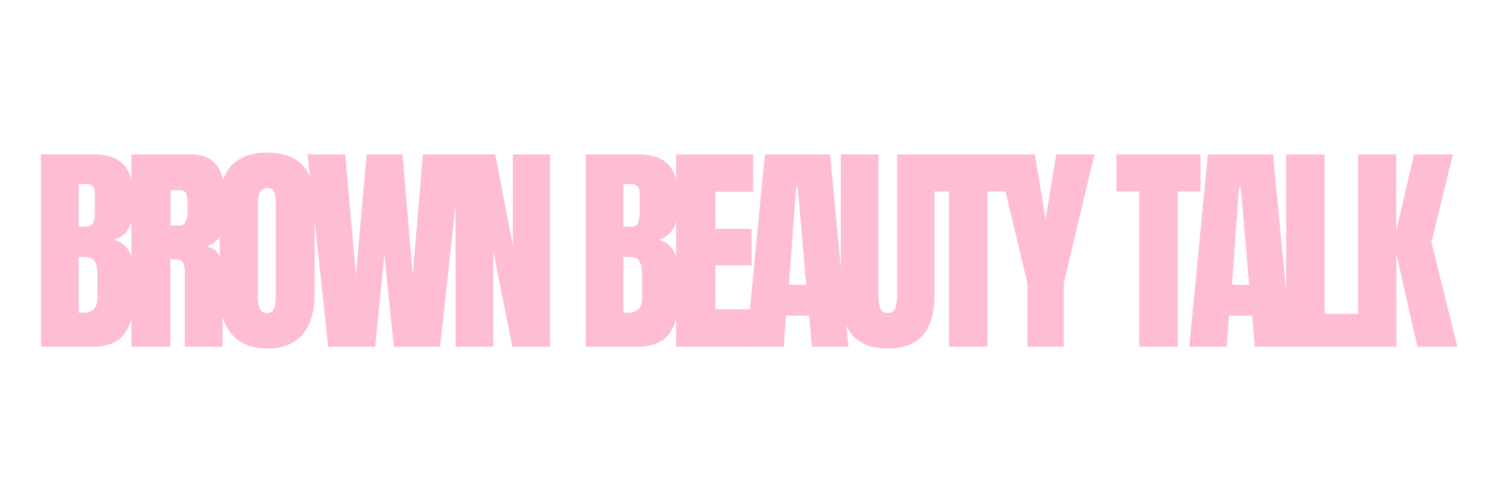There has been a lot of talk about the use of acids in skincare and how effective they are. Glycolic, Salicylic and Hyaluronic acid always gets a mention but then we have others such as Mandelic and Malic.
So which acid works best for which skin type or particular concern? Aesthetician, Kemi Fabusiwa from Joyful Skin Clinic gave us the lowdown.
Exfoliants
Glycolic Acid
This is an alpha hydroxy acid derived from sugar cane. It exfoliates your skin by removing the upper layer of dead and dying skin cells, allowing fresher, younger skin underneath to reach the surface. Glycolic acid is the most effective exfoliator due to its small molecular size which allows it to penetrate deep into the surface of the skin.
However, it also has the most side effects and can lead to irritation and inflammation. For Black and Asian consumers this is important because this inflammation can trigger hyperpigmentation (post-inflammatory hyperpigmentation), so it is therefore best to use lower strengths of the acid or trial gentler exfoliating acids.
Lactic Acid
This used to be derived from milk but is now made synthetically. The molecules are larger in size than glycolic acid which results in a less effective exfoliator but it is much kinder to your skin. It may be a suitable alternative for Black and Asian women who are prone to hyperpigmentation.
Citric Acid
This is derived from citrus fruits. It is also an alpha-hydroxy acid (AHA) but not as effective as glycolic acid or lactic acid. It is often used alongside other ingredients in your skincare products as it works as a preservation. It also has antioxidant properties which helps defend your skin against external aggressors such as UV radiation. It is useful for Black and Asian skin when combined with other ingredients.
Tartaric Acid
This is derived from grapes and is another AHA. It exfoliates your skin and helps to reduce wrinkles and promote collagen turnover. It is not as stable as glycolic acid nor as effective, however, it has anti-oxidant properties. Studies show that it may help to replace ceramides in the skin which would strengthens your skin’s protective moisture barrier. This would be important for Black women and Asian women as it would make your skin less prone to irritation.
Mandelic Acid
This is another AHA that can be found in many topical formulations including skin peels. Like other AHA's it removes the upper layer of dead and dying skin cells, enhancing cellular turnover, and encourages the production of younger, healthier skin. This cellular turnover improves the appearance of acne, wrinkles and hyperpigmentation. Mandelic acid is greater in molecular size than other AHAs such as glycolic acid and lactic acid and so is beneficial for those with sensitive skin types.
Malic Acid
This is an exfoliating ingredient derived from unripe fruit. It is considered to be an alpha-hydroxy acid. This ingredient helps to regulate the pH is skincare products. It is another gentler alternative to glycolic acid for Black and Asian skin.
Salicylic Acid
This is a beta-hydoxy acid (BHA), which means that it can dissolve through the oil in your skin, making it beneficial for oily skin. It helps to penetrate deep within the pores helping to remove the dirt and bacteria that are trapped within the sebum. Black and Asian women who are prone to acne are also prone to scarring and hyperpigmentation as a result. This makes salicylic acid especially useful for those who suffer from acne and breakouts as it helps to tackle the root cause of the scarring and pigmentation.
Non-exfoliants
Hyaluronic Acid
This is a humectant that helps that helps to draw water from the lower layers of skin up to the surface. It is capable of holding 1000 times its weight in water and is suitable for all skin types. It can also be used alongside many other skincare products without the fear of interaction. It is especially useful for Black and Asian women as it helps to improve the integrity of the moisture barrier, which makes your skin less susceptible to damage from external aggressors.
Azeliac Acid
This acid is taken from grains such as barley, wheat and rye. It has the same effect as a mild, leave-on exfoliant. If you suffer from blocked pores and uneven skin then this would work for you. Azelaic acid is also a potent antioxidant and reduces sensitivity and bumps.





